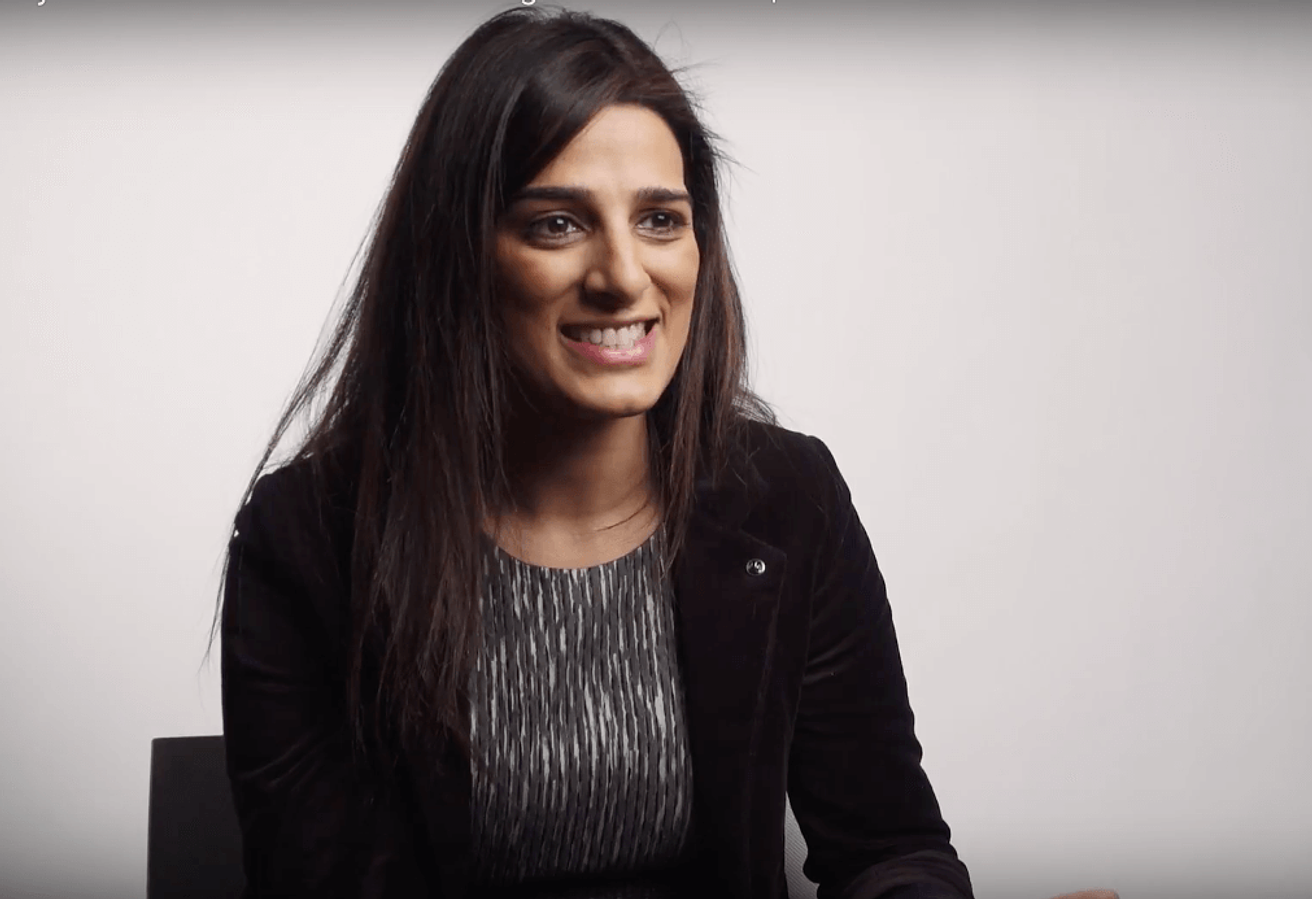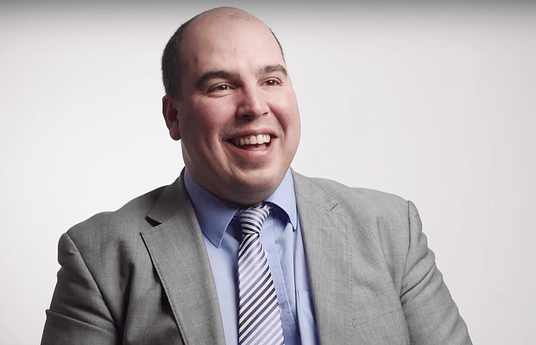Priya Lakhani O.B.E. is the Founder and CEO of CENTURY Tech, an AI learning platform for teachers and students. Here she tells us about the teacher shortage crisis, what makes the ideal learning environment and shares the childhood experience that led to establishing her company.
Do you feel that the current way we are educating children fully prepares them for the needs of the 21st century?
I think that the way in which we prepare children for the future world is just so backward. We really, really need to change education, we need to look at the 21st century, we need to look at the skills required by companies today. We actually won’t know what a lot of them need in the future, but we know that STEM skills are incredibly important, that the arts are incredibly important, hence the new term of STEAM, and actually employers and industry are crying out to educators and policy makers to ensure that education really does train our children in the right way.
Unfortunately, the education system was built in the industrial revolution so it really does need a real rethink. It’s going to take business together with educators to come together to find out what that might look like. And it may be a real steep change, something that looks very different and feels very different - that often makes educators feel uncomfortable. But I do think that’s what’s necessary and I think the sooner we do it the better.
We’re short of skill sets in the UK, we’re looking abroad as to who we can hire but I think that every country has the same problem. So, it’s going to need a real change in education and it’s going to take pioneers to go off and do it. I think one of the other issues, having spoken to people in the Department of Education here in the UK, is that there’s now starting to be an even bigger focus on a knowledge based curriculum - there are lots of head teachers, teachers and myself, we're really concerned about this.
Of course, we absolutely need knowledge, that’s the foundation to be able to then build upon applying skills. But skills are incredibly important and what we don’t want is for skills to be ripped out of the curriculum, I don’t want my own children to rote learn every single day and then leave their education and not be able to apply their skills, not be able to problem solve, be proactive, not be able to utilise the entrepreneurial mind-set. So, it’s incredibly important that we look at skills and see how we can implement them more in the curriculum and that we ask our policy makers to really stop talking about removing skills from the curriculum, I think it’s an incredibly dangerous attitude and incredibly misguided.
What is the role of the teacher?
I think teachers are incredible, I’m every teacher’s biggest fan, we have half a million of them in the UK and I have never met a teacher who has gone to a school and came to teach badly. They’ve come to inspire, to impart knowledge of a subject that they love and they come to work with young people. The role of the teacher is to do exactly that.
We have a significant problem and a national crisis, in fact an international crisis.
We don’t have enough teachers and 74% of teachers consider leaving their jobs in the UK - they cite workload as the biggest issue. We need to address that because at the moment most of them are under-paid, under-resourced, incredibly talented, and they want to work with young people or they’re amazing historians or mathematicians and they want to impart that subject knowledge. But, 60% of their time in a week is spent on admin and that’s absolutely appalling, they’re not able to actually do what they came to do.
That’s one of my roles at Century, to be able to reduce teacher workload and make their time far more efficient but we’re going to need something from policy makers, from head-teachers, from Senior Management, to enable teachers to do what they really do.
We want to have the human in the teacher very prevalent in the classroom, so instead of head down, looking at a mark book, it’s head up, one to one interactions with students. If you ask anyone what was school like… what were your favourite subjects? They are going to be talking about a teacher very quickly. We need to make sure that all our students also have the same experience, so when they grow up they can talk about lots of inspiring people they met right there in the classroom.
What do you feel the most exciting or effective learning environment would be?
I think that a really exciting or effective learning environment would just be the one where you can see the result. I was taught as a barrister that it doesn’t matter what I’m trying to say and how I’m trying to say it, if the person doesn’t understand then I haven’t communicated that effectively, that’s my fault. So, the most exciting education environment would be when you have children leaving at the end of the day, let’s say that’s what the perfect environment even looks like, and they’re feeling engaged, they’re feeling inspired, they feel like their brains have been physically stretched and they’re excited to learn.
I think the best education system would be one that teaches children how to think, how to problem solve and if you have a problem in front of you, which resources would I use, where would I find them and then how would I solve that effectively? And if we can have that in a thrilling, engaging environment then that would be absolutely fantastic.
We need to provide them with a knowledge base, with discipline, social skills, the ability to interact and if we can create that in an environment where they can go and shout about their amazing teachers, their amazing friends and what they’ve learned that day then I think that would be the most perfect education – because that’s what education is.
That’s going to take some doing though, and it’s a huge challenge because I don’t think we have that. We have far too many children who don’t get that, we have 1.8 million children underperforming in our UK schools, let alone looking at the global situation. Certainly, that’s an experience I’m aspiring to try and help build for the children in education today.
The one thing we’ve learned at Century with being AI and personalized learning is that teaching is as personalized as learning is. There’s no one method. It’s really about who your children are, some people have different challenges. I go into schools and colleges and we have a lot of behavioural issues, special educational needs – and I actually believe we all have special needs, we shouldn’t put someone in a box just because they are dyslexic or have autism or ADHD.
Some people say children with special needs can’t go to university, but if they have special educational needs and they are keen to go to university, there’s an academic subject they want to explore – that’s absolutely for them! We’ve just got to find the right way for the child to engage with that subject. We should not be excluding anybody.
What role do you think government should play in education?
I think government has a really important role in education but I feel that the most important role is actually the teachers and the head-teachers – so government's role in education is to listen to them and hear what’s happening in classrooms, what they can do and how they can create an infrastructure that doesn’t inhibit the ideas that these innovative, pioneering teachers and head-teachers have within their classrooms.
Also, to see how we marry education with the world. What is education? It’s actually a path for students to go and do something, have a really amazing career, explore, discover, create and innovate. So, if education is supposed to lead a certain sector into industry, what does industry want, what skills do they need? The government is really there to set up an infrastructure and a fertile ground for this to happen, to foster relationships between industry and educators.
What it’s not there to do is create policies that stifle creativity, that stifle the skills that industry needs or what innovators are saying they’ll need in the future. They’re there to support. I think we have some really great ministers who really understand this, I think a bit more listening is required.
In the UK, we’ve seen a lot of backlash against certain policies and curriculum changes, and I think government should listen to why these things are controversial and what effect they have on the ground and what impact it’s having on the students. What’s the real impact? What skills are we now not teaching them? Government should also listen to all the stakeholders in terms of what we can provide to our children.
What was your favorite moment or experience in your own K-12 education?
My favourite memory actually came to me and inspired me to start my company and this is actually the moment that Mrs Dells, my Physics teacher, pulled me aside and put me in the middle tier in maths and sciences, which to, by the way, an Indian child with Indian parents, is not ideal! You can tier me in any other subject, but maths, no! It’s not possible, my parents certainly weren’t thrilled about that! Mrs Dells pulled me to the side and said Priya, don’t worry about the tiers (because I was distraught and I’d been told “you can’t, you can’t, you can’t!”) She told me “you can! you can do this, and if you achieve certain grades in certain subjects in middle tier you can achieve an A grade.”
She told me I could. And I worked so hard, every lunch time, I dragged my poor chemistry teacher into the lab every lunchtime and I got the A grade from middle tier in science, which I know is incredibly tough, not many people in the country do it. And I simply wouldn’t have if she hadn’t told me. Since then, I’ve remembered Mrs Dells, one of my offices is actually named after her because I will never ever forget what she said to me.
I just think if all of our children are in school and they have a teacher like that then they’ll be great and they’ll be able to achieve greatness. If you’re living and breathing you can achieve greatness, we just get in our own way and unfortunately as a child other people can get in our way. The best teachers are the ones that lift you up and help you to achieve.
The next 100 years of education should… Focus on empowering the learner, giving them the skills base they need and liberating the teacher so they can do what they came to do, which is to inspire, impart knowledge and work with young people and give them the right base so they can go on and achieve whatever it is they want to achieve.


